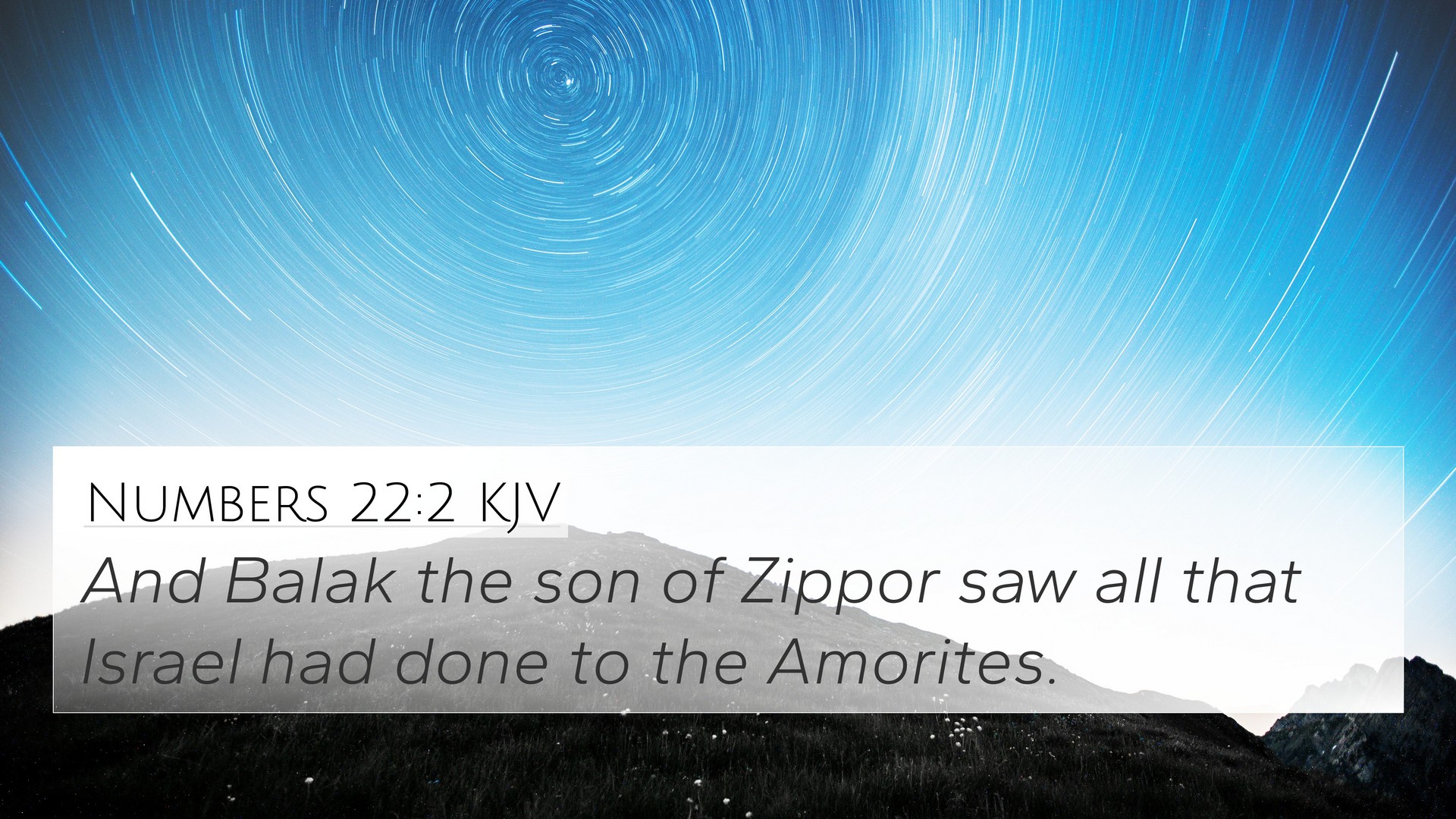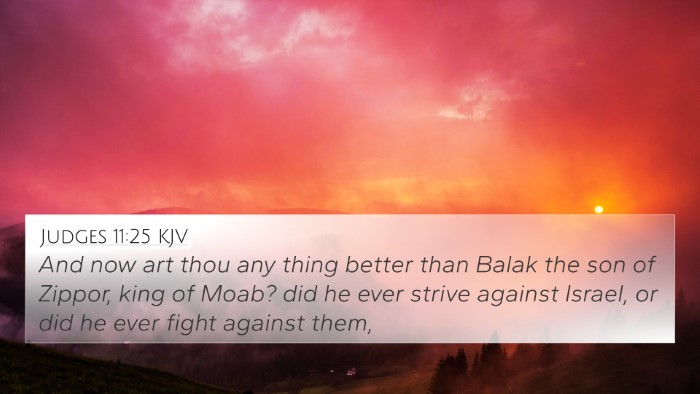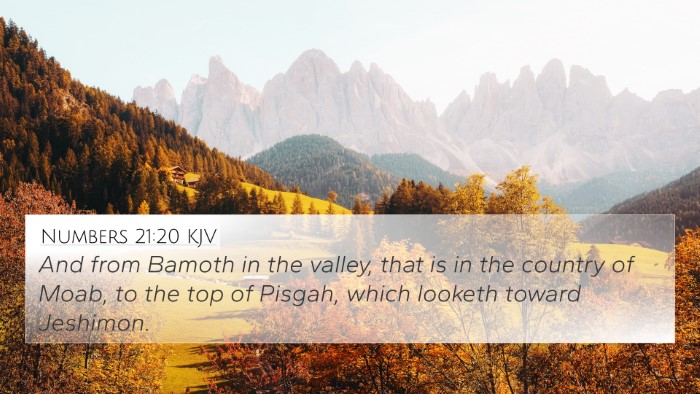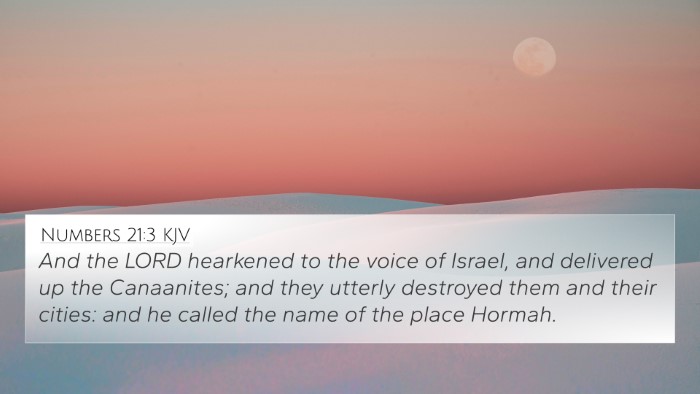Summary and Interpretation of Numbers 22:2
Numbers 22:2 states, "And Balak the son of Zippor saw all that Israel had done to the Amorites." This verse serves as a pivotal introduction to the narrative concerning Balak and Balaam, highlighting the context in which the events unfold.
Contextual Background
To gain a deeper understanding of this verse, it’s essential to recognize the preceding events in the Book of Numbers. The Israelites had recently achieved significant military victories, which instilled both fear and concern in Balak, the Moabite king. As seen through the eyes of various commentators:
- Matthew Henry notes that Balak, witnessing Israel's victories, felt threatened by their growing power and influence. He understood the need for intervention to safeguard his own kingdom.
- Albert Barnes highlights the strategic position of Moab and Balak’s fear that Israel would conquer his land next, prompting his call for a prophet to curse Israel.
- Adam Clarke adds that this fear was not groundless; the success of Israel was indicative of divine support, which Balak desperately sought to counteract.
Thematic Connections
This verse is rich with themes that elucidate not just the historical undertones but also the theological implications. It emphasizes God's sovereignty in granting victory to His people and the reaction such victories incite in adversaries. The following points are of significant interest:
- Divine Intervention: Balak’s actions highlight the recurring biblical theme of nations rising against God’s chosen, which is echoed in other scriptures.
- Fear of God’s People: The narrative indicates how God's blessings on Israel provoke fear and hostility in surrounding nations, leading to attempts to thwart God's plans.
- Curses and Blessings: The interplay between blessing and cursing in the context of God’s promises becomes a central theme as Balak seeks out Balaam.
Cross-References to Enhance Understanding
For a comprehensive study, here are 7-10 passages that relate to Numbers 22:2:
- Exodus 15:14-16: The dread of Israel among foreign nations is detailed, showing how God’s actions resonate through generations.
- Deuteronomy 2:9: God instructs Israel not to harass Moab, which provides insight into the relationship dynamics between Israel and Moab.
- Joshua 24:9-10: A historical reference indicating how God deterred attempts against Israel by securing victories.
- Isaiah 54:17: "No weapon formed against you shall prosper," that illustrates God’s protective promise to Israel against foes.
- Psalms 56:4: A declaration of trust in God in the face of adversarial challenges, resonating with Balak’s fear.
- Matthew 2:3: King Herod's reaction to the announcement of Jesus’ birth parallels Balak's response to Israel's victories.
- Romans 8:31: “If God is for us, who can be against us?”—A New Testament reflection on God’s protection of His people.
Connecting Threads in Scripture
The inter-Biblical dialogue sparked by Numbers 22:2 reveals that the underlying message transcends time, reflecting fear, manipulation, divine purpose, and fulfillment. The tools for Bible cross-referencing can guide readers to explore these themes deeply.
For those interested in Bible verse cross-references, it’s beneficial to utilize a Bible concordance or a Bible cross-reference guide to see how this theme plays out throughout the scripture. Consider exploring cross-reference Bible study methods for a more comprehensive understanding of these connections.
Conclusion
In conclusion, Numbers 22:2 not only sets the stage for the conflict between Balak and the Israelites but also acts as a precursor to the vast theological implications regarding fear, divine favor, and the ongoing clash between God’s purposes and worldly powers. By examining the connections between Bible verses through comparative Bible verse analysis, readers can gain insights that enrich their study and understanding of scripture.





